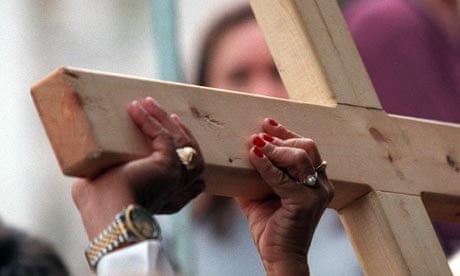I wish I could invite the world into my church meetings, especially those who find little redeeming value in religion.
As a counselor in my congregation's women's society, we have stewardship over a group of women 150-strong. We meet every few weeks to discuss our organization. There is the administrative piece: who is going to teach this Sunday? Do we have the food planned for the upcoming social? But mostly we spend our time talking about the women in our congregation.
Let me be clear: this is not a gossip session. This is a talk about real women with real-life challenges. There is a woman being evicted from her home – what can we do to help? There is another whose husband lost his job – their family needs food. New mothers get hot meals dropped on their doorstep. We pull together moving crews to load and unload furniture. We plan activities so that wheelchair-bound women have a place to socialize.
I have been in this (unpaid, unsolicited) position for two years. We've helped two women through cancer, one who made it and one who didn't. We organized four funerals, carting in hundreds of sandwiches and desserts. I've chopped vegetables for a woman who couldn't wield a paring knife and taken women to our food shelter where they can get a month's supply of food.
None of us are saints. We come to church with our own set of baggage: greed, envy, anger, depression and laziness. We can be close-minded and belligerent. Sometimes we drive one another crazy. But we keep coming back because we believe, and that belief translates into action.
Recently, I attended a reading by a bestselling author who announced, quite proudly, "I'm not religious, but I am a spiritual person." Everyone cheered. In our increasingly secular world, religion is looked at like poison, best kept bottled and locked away, slapped with a warning label.
Faith has become an easy target for the ills of the world. We can look at riots in the Middle East, at the continual tension between Palestinians and Jews, at the Evangelical minister who throws a heathen blanket on unbelievers, and say, "If we would all give up this fallacy that there is a God, the world would be a more peaceful place." We could all beat our swords into plowshares and hum solstice songs around a campfire.
If some secularists aren't throwing darts, they're pummeling religion with slow bruises. The creators of Book of Mormon the Musical called it "an atheist's love letter to religion". I find this off-putting. It's an obtuse way of saying:
We've figured out the truth for ourselves, but for those of you who still insist on some sort of religious safety net, we'll give your beliefs a catchy tune and lump them with hobbits, Yoda and other fantasy fiction.
Here's the truth about believers: we don't live in Oz, happily following the yellow brick road to the Emerald City where some man posturing as God speaks behind a great curtain. We see the same shadows as the godless and wrestle with the same beasts. When we're pricked, we bleed.
Of course, not all religion is created equal. I've been in enough stone churches, effigies to the well-heeled nobles of past generations, to know this. Religion, like any other tribe, can breed fanatics and corruption. I have rolled my eyes in my own Sunday school classes at times at the mention of certain politics. Yet to dismiss religion because it only creates problems is missing what happens here on the ground. It's missing what belief does to gather communities, build homes, feed the hungry, clean up after a natural disaster and yes, save lives.
Religion has made me, a wholly selfish person, into someone who cares about something bigger than myself. I don't drop to my knees every morning in some blind fanaticism, but to say, "God, I am at your service." For the faithful, we choose to see God in everything – the first crocus of spring, the curve of a young child's face. We hear his voice, not in a burning bush, but telling us how to parent a challenging child or help a friend. We gather with other like-minded believers. We are fallible and sometimes frustrating individuals, but the level of service, support and love I have not seen replicated through any other social service, community group or government program.
Whether a person taps into that or not, whether they find a life that is God-filled or not, it seems reasonable that there is room in this vast, beautiful world for the believer and unbeliever to live in measured understanding towards one another.
